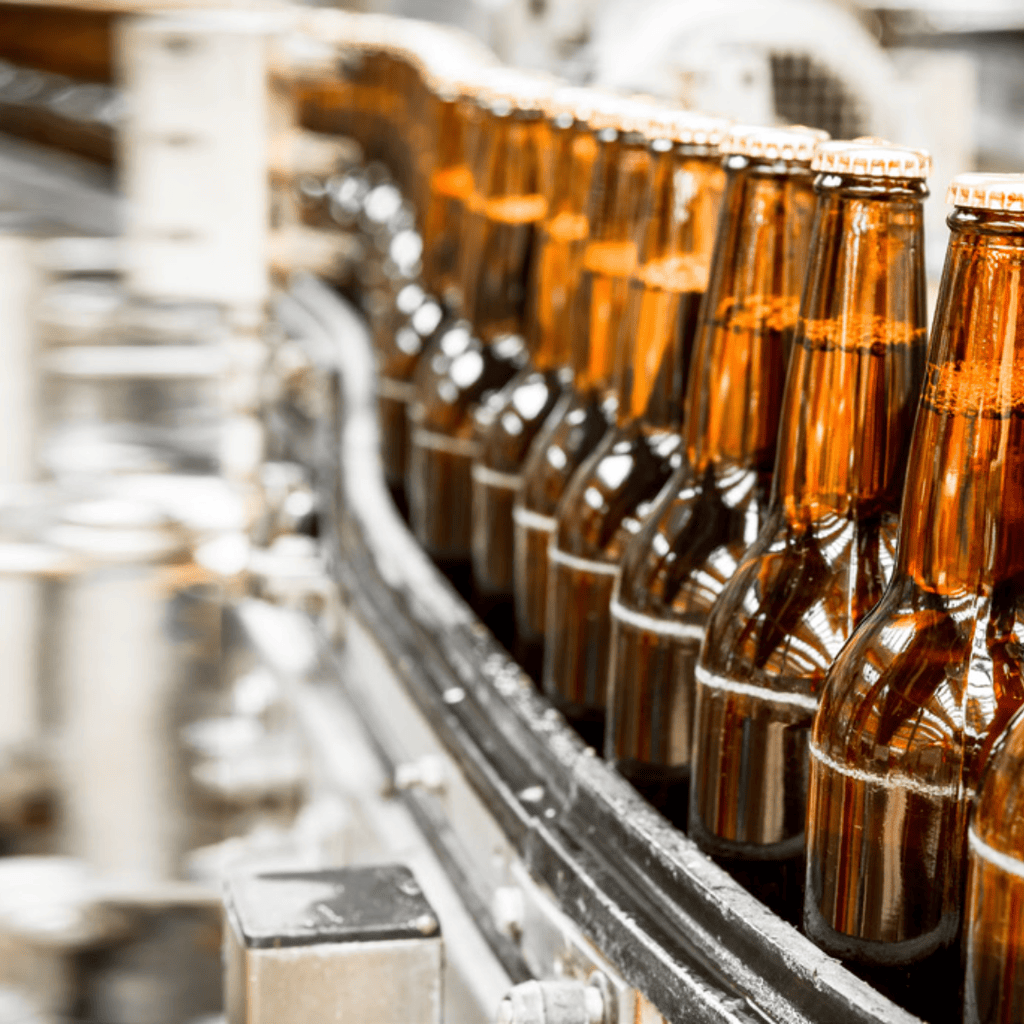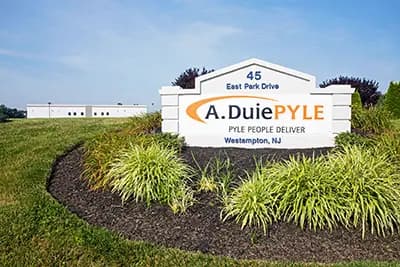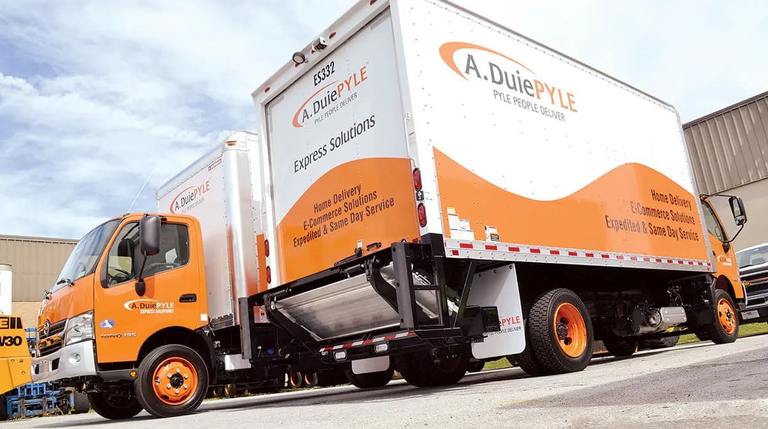
Innovation in Beer Transportation

Brewers control the quality of their beer right up to the point where it goes out the door. When a four-pack of cans, a sixer of bottles, or a growler leaves the brewery in a customer’s hands, a brewer’s job is largely done. But when beer heads out for distribution, that’s where things get complicated. Transportation, shipping, and logistics remain a challenge for most breweries, with heavy pallets loaded into heavy trucks that head to a distribution warehouse or even direct to accounts. We talked with one regional transportation company about its plans to innovate and shake up the business of transporting beer.
Avoiding The Default Option, Disrupting The Status Quo
As the Director of Market Research for A. Duie Pyle, Mike Lindquist is well-versed in the state of transportation and logistics. Pyle offers less-than-truckload (LTL) services throughout the Northeast and through partnerships in the Southeast, Midwest, West Coast, and Canada. It operates dozens of LTL service centers and warehouses dedicated to its small load shipping services.
Pyle recently entered the beer space, offering brewers of all sizes the opportunity to ship pallets across the region and country. “We just thought it was a perfect fit for our business and one we’ve never handled before,” Lindquist says. “The Northeast is just littered with brewers, regionalised distributors, imports, exports. There’s so much supply chain happening in the Northeast for the brewing industry and we already handle a lot of the raw materials.” Pyle delivers raw materials from Proximity Malt, Country Malt, and BSG among others to breweries. “So we’re already going into a lot of these places, so it only made sense. Why wouldn’t you look to pull and move freight out of those same places?”
“It’s only helpful for those that are large enough to want to distribute and want to take control of their supply chain,” Lindquist says. “A lot of brewers just rely on a third party or the distributor to handle the supply chain piece. So they don’t exactly know what their cost is going to be. Whereas whenever they take control of their own supply chain, they know what their fully burdened cost is going to be.” Lindquist notes that most distributor contracts offer two different sets of costs, one where the brewery controls the distribution and the other whether the distributor controls the transportation. And I think it was an educational process that brewers can actually control their transportation costs without a whole lot of effort.”
Smaller Shipments and Already Being On-Site
In his research, Lindquist also noticed that while many transportation companies operated in the region, few understood all the laws and rules governing the transportation of all alcohol between the states. While Pyle researched, applied for, and received all of its permits to transport alcohol, it also met with brewers to assess their needs. They learned that brewers operate under a patchwork of transportation regimes, ranging from having a distributor direct all the shipping to breweries owning their own trucks and engaging in self-distribution. As part of his research, Lindquist noticed that brewers were underserved with respect to shipping smaller amounts of product. Pyle now offers breweries the opportunity to receive shipments of raw ingredients off a truck and then refill the same truck with a pallet or more of beer to be transported off-site.
Pyle believes small brewers can work together to benefit from smaller shipments and avoid the expense and logistics involved in self-distribution. “We can have one third party truck and then resupply at the same time. So we could have a warehouse in the area that would have the cans and the malts and everything they need on the raw material side. So in the morning, you go around and you’re hitting on a box truck or tractor trailer that would deliver them one pallet of cans and one pallet of malt. And then at the same time, they’re picking up the next day deliveries that need to go out.” Lindquist points out that this helps small brewers leverage their buying power, going in together on a shipment of cans delivered to a central warehouse, and then having the supply split and delivered to several locations. “You’re helping each one of them stay competitive in the marketplace,” he notes.
Keeping Beer Cold
One issue breweries routinely experience in the transportation of their supply is keeping the beer at proper temperatures. A brewer can produce a perfect beer that goes out the door only to wilt in the heat of an unrefrigerated truck. But the expense can be high. In his conversations with brewers, Lindquist repeatedly heard them focus on the importance of having specific temperature controls while transporting beer. “Some are incredibly particular about wanting their temperature exactly at a certain range,” he says. “They ask, ‘can we have it refrigerated? And what does that look like?’”
In an innovative way to meet the market demand, Pyle worked with its trailer manufacturer, Great Dane, to design a new trailer spec just for the beer industry that will be introduced at the end of the year. “It’s not a true reefer [trailer] like a grocery refrigerated trailer would be, but it will keep a temperature between say 42 and 75 degrees,” Lindquist notes. “So it’ll protect the beer in the winter from freezing and in the summer, it will protect it from getting hot. And that came directly from our conversations with brewers. Pyle will operate its usual LTL business with load bars and wood floors in the trailer but with the option to keep the trailer at a consistent temperature. That is unusual in the LTL space, where Lindquist notes most shippers “don’t care if their freights are at 59 degrees or 110 degrees,” he says with a laugh.
Electric And Self-Driving Trucks
You can’t have a discussion about innovations in the transportation business without mentioning electric and self-driving trucks. Lindquist notes that he had many discussions on the topic at the recent NBWA conference. “The whole electric trucks and driverless trucks, it’s still way off,” Lindquist says. “There’s a lot of discussion about them, it’s a great topic that people like to talk about. In reality, charging an electric truck to actually be useful in the beverage industry is a long ways away. It’s one thing to haul potato chips at 12,000 pounds. It’s a whole other thing to pull a 44,000 pound trailer of beer 500 miles.”
Lindquist also notes that a trailer’s refrigeration typically runs on diesel, which is something the electric trucking industry isn’t yet considering. He also notes that the trucks are five times more expensive than a normal truck and the charging infrastructure, which is separate from electric cars, also isn’t anywhere close to ready.
You May Like

Regional LTL Carrier Award Adds to Pyle’s Haul of Honors
For the second year in a row, A. Duie Pyle, a provider of asset- and non-asset-based supply chain solutions, was named as a Platinum Regional LTL Carrier by Echo Global Logistics, a provider of technology-enabled

A. Duie Pyle to Open Three Locations in Virginia
A. Duie Pyle Inc. is opening three new facilities as part of an effort to expand its services into Virginia, the company announced March 15. The West Chester, Pa.-based provider of asset- and non-asset-based supply